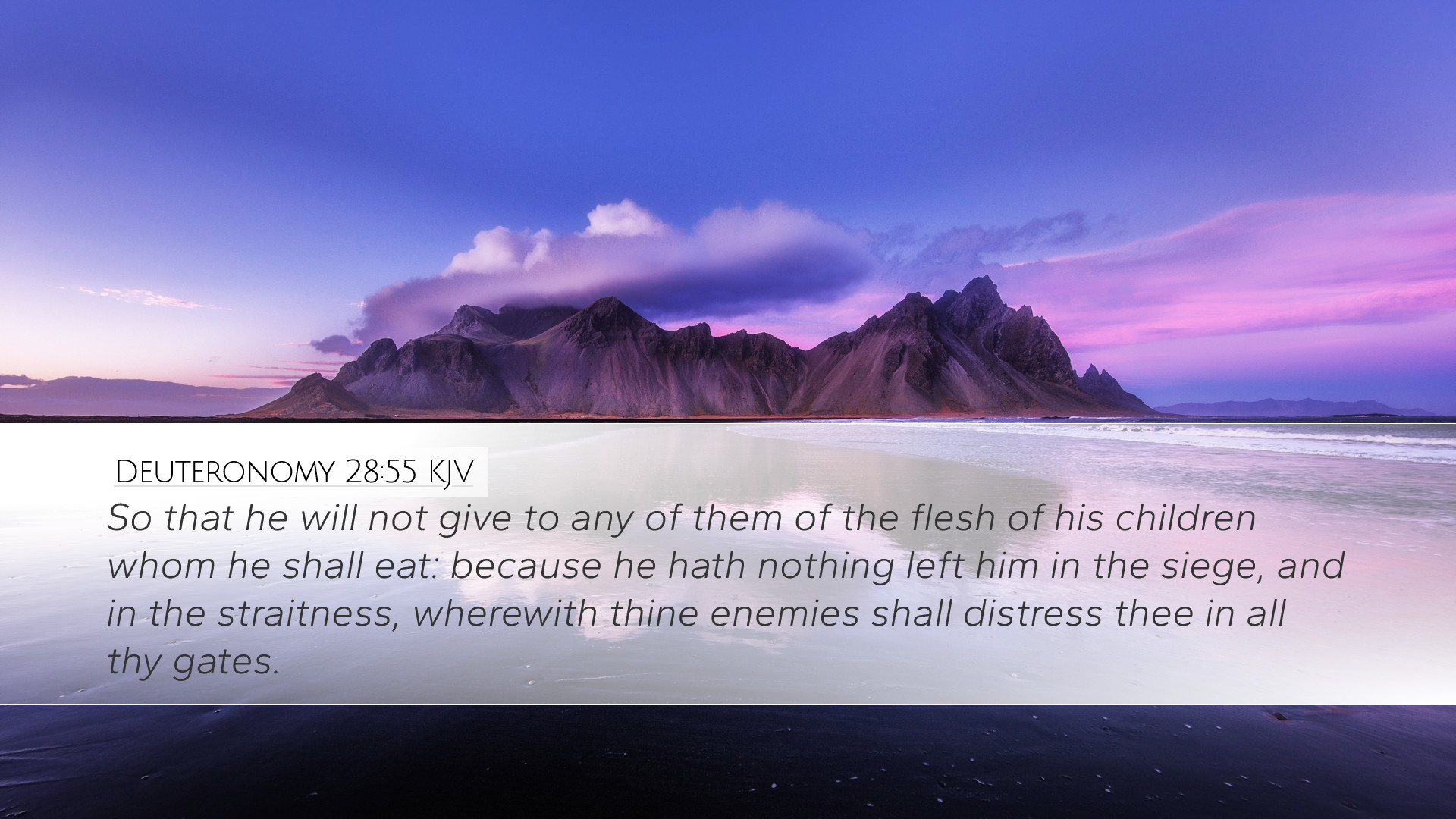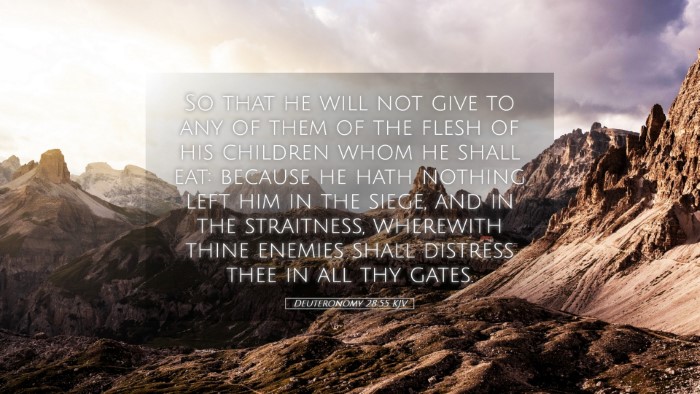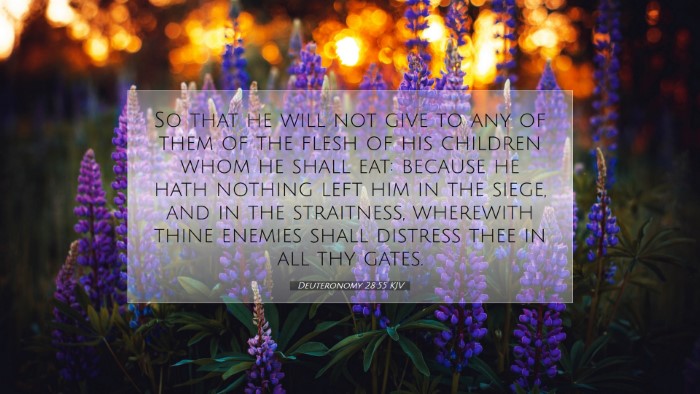Deuteronomy 28:55 - Commentary and Insights
Verse: "So that he will not give to any of them of the flesh of his children whom he shall eat, because he hath nothing left him in the siege and in the straitness, wherewith thine enemies shall distress thee in all thy gates." (Deuteronomy 28:55)
Introduction
The verse in Deuteronomy 28:55 presents a profound warning concerning the dire consequences of disobedience to God's commandments. The context of this verse is found within the chapter that outlines the blessings for obedience and the curses for disobedience among the Israelites. This specific verse highlights the extremes of suffering that can arise from the siege of an enemy when the covenant community turns away from God.
Contextual Analysis
Deuteronomy 28 is part of the Mosaic covenant, which includes blessings for following God’s laws and curses for transgressing them. This section of Scripture illustrates the stark contrast between the rewards of obedience and the devastating outcomes of infidelity. The seriousness of the covenant relationship is emphasized through the eschatological (i.e., prophetic) language detailing what would befall Israel should they forsake their commitment to God.
Historical Background
In the ancient Near East, siege warfare was a common practice among warring nations. The psychological and physical trauma inflicted during these sieges often led to desperate circumstances, culminating in cannibalism as a last resort for survival. This is seen in various historical accounts, as well as in other biblical texts, where scarcity drives men and women to their utmost extremes.
Theological Implications
This verse pushes readers to contemplate the repercussions of a community’s collective sin. Theologically, it raises questions pertaining to the nature of God’s justice and mercy. The severity of the curses outlined serves not only as warnings but also reflect the gravity of rebellion against divine instruction.
Spiritual Abandonment
As noted by Matthew Henry, the abandonment depicted in this verse is emblematic of a broader spiritual decline. The act of not caring for one's own kin—being moved to cannibalism due to the siege—underscores a total collapse of social order and familial bonds that God ordained to be sacred. This signifies how far removed the people have drifted from the compassion and community mandated by divine law.
Covenant Responsibility
Albert Barnes points out that this verse illustrates the covenantal responsibility that comes with being God's chosen people. It is not merely a matter of individual righteousness. The integrity of the community is interlinked with God's covenant promises, demonstrating that one's actions can have grave repercussions not only for the individual but also for the whole nation.
Human Desperation
Adam Clarke emphasizes the psychological agony embedded in this verse. When a person reaches the point of cannibalism, it reflects an overwhelming sense of desperation and hopelessness. It serves as an illustration of spiritual, moral, and physical degradation, where the values intrinsic to human dignity are utterly forsaken under duress.
Practical Applications
For pastors, students, and theologians, the implications of this passage are significant. It invites reflection on the individual and collective responsibilities of spiritual leadership and obedience.
Spiritual Vigilance
Leadership within the church is called to foster environments that promote spiritual health. The example found in Deuteronomy 28:55 is a reminder of the destructive potential of disobedience, stressing the need for vigilance against complacency.
Community and Compassion
Moreover, this passage exhorts believers to prioritize compassion and community integrity. The ideal of family and community support highlighted by God’s laws stands in stark contrast to the ultimate disintegration depicted in this verse.
Courageous Leadership
Finally, the call to courageous leadership in the face of adversity cannot be overstated. Just as Israel faced real enemies, the modern-day church also encounters spiritual adversaries that seek to undermine faith and promote division. Pastors and leaders are encouraged to uphold the truth with strong convictions to maintain the community’s fidelity to God’s calling.
Conclusion
The overarching message of Deuteronomy 28:55 commands us to heed the seriousness of covenant faithfulness. The passage serves as a grim warning of the consequences of failing to live in accordance with God’s will, while also reminding us of the importance of community belonging and compassion. For those engaged in pastoral work or theological reflection, this verse can be a pivotal reference point for advocating vigorous faithfulness to God, underscoring both the personal and collective dimensions of living in covenant relationship with the Lord.


